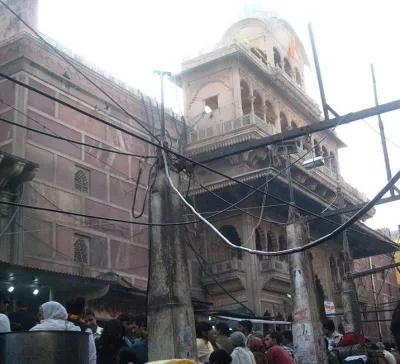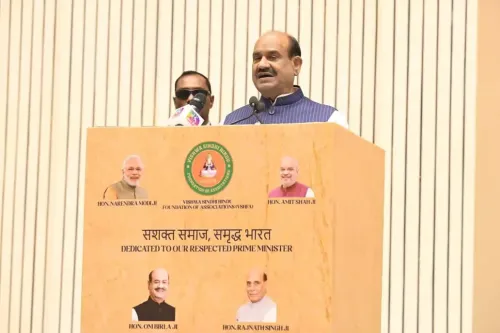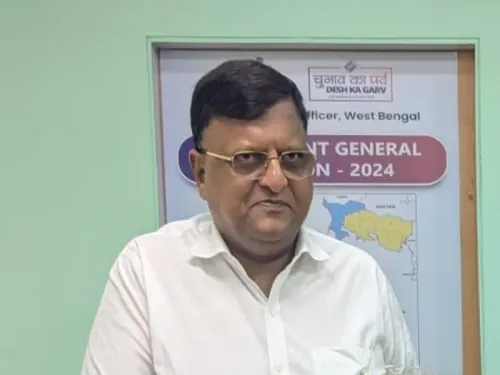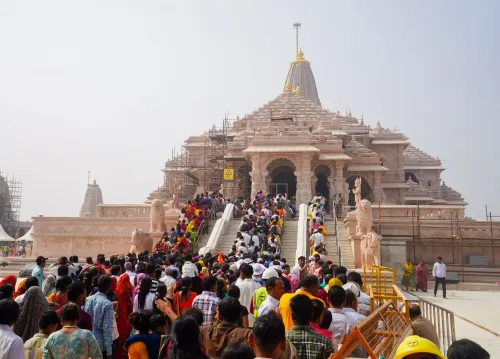Will the SC Address Management Issues of Shri Banke Bihari Temple on Monday?

Synopsis
Key Takeaways
- The Supreme Court will hear petitions regarding the Shri Banke Bihari Temple's management.
- Concerns about state interference in religious matters are at the forefront.
- The Uttar Pradesh government's Ordinance has sparked significant legal disputes.
- The case could have broader implications for religious autonomy in India.
- Key legal arguments involve the historical management structure of the temple.
New Delhi, Aug 3 (NationPress) The Supreme Court is set to convene on Monday to deliberate on several petitions regarding the management of the esteemed Shri Banke Bihari Temple located in Mathura-Vrindavan following the enactment of the Uttar Pradesh government’s 2025 Ordinance.
According to the causelist available on the apex court's website, a Bench comprising Justices Surya Kant and Joymalya Bagchi will review the petitions, including one that contests the recent Ordinance issued by the Uttar Pradesh government, which effectively centralizes the management of the Shri Banke Bihari Temple, during the hearing on August 4.
Recently, the Justice Kant-led Bench instructed that the matter be forwarded to the Chief Justice of India (CJI), who will designate an appropriate Bench to hear all related petitions collectively, after it was noted that a similar petition is already under consideration by a different Bench. One of the petitions argues that the Uttar Pradesh government's new Ordinance signifies state meddling in religious matters and asserts that the temple does not constitute public property nor is it a state-run trust.
The petitioners maintain that the temple has historically been governed by a private management framework established in 1939. They further argue that the Ordinance contravenes the terms of that framework and jeopardizes the independence of the current temple management committee.
The petition additionally posits that there was no urgent necessity for the state government to enact such an Ordinance, and that the government has failed to provide adequate justification for assuming control over the temple’s administration. It claims that the Ordinance's provisions infringe upon the rights of the Haridasi Sampraday (or Sakhi Sampraday) to self-manage their religious affairs and the rights of its members to freely practice, profess, and propagate their faith by attempting to modify essential religious practices, rituals, customs, and traditions, which could displease the deity and potentially lead to the extinction of the denomination.
“Sections 5 (1)(i), 5 (i), and 6(8) of the Ordinance blatantly violate Article 26(c) and (d) by permanently removing the right of administration from the religious denomination and transferring it to a non-denominational secular authority. Therefore, under the guise of improved management, the Ordinance has completely usurped the administration and management from the religious denomination, establishing an entirely new entity that renders the religious denomination obsolete,” stated a plea submitted by advocate Sankalp Goswami.









